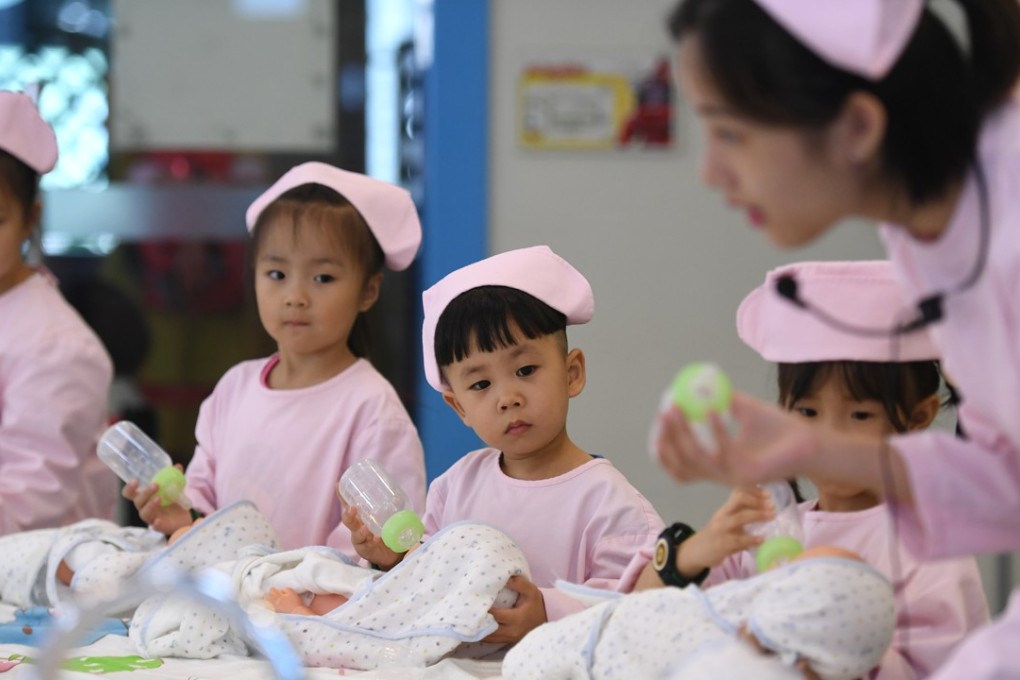Advertisement
Why China doesn’t need a baby boom, just a skilled population
Stuart Gietel-Basten says focusing on raising the birth rate is not the perfect answer to China’s ageing population problem. Holistic policies that support parents and improve education for children would be more effective
Reading Time:3 minutes
Why you can trust SCMP

Another year, another bleak forecast of China’s greying population. As most demographers predicted, the recent reforms in population policy – namely the move to a nationwide two-child policy – have had little impact on the country’s fertility rate. Indeed, figures released last month indicate a drop in the number of births in 2017 compared to 2016, from almost 18 million per year down to 17.23 million.
Part of this decline is due to demographic technicalities. First, the number of women at childbearing age peaked in 2011. So even if the fertility rate stayed the same, the number of births would decline anyway. Second, Chinese couples tend to marry and have children earlier than their counterparts across Asia. Now, however, these decisions related to family formation are being postponed. This artificially deflates the fertility rate on a year-to-year basis. In other words, just because people are not having children today does not mean they will not in the future. If they do, then fertility rates will naturally increase.
This so-called “postponement effect” was, in fact, mainly to blame for the very low fertility rates seen in Europe in the 1990s. During that period, much ink was spilled about the European “demographic crisis”: low fertility posing an existential threat to the future of the continent through rapid ageing, population decline and emasculation on the world stage.
Simply having more children is actually quite an ineffective means of offsetting total population ageing
Of course, the “death of the West” has been somewhat exaggerated. However, the responses to China’s low fertility rates have been equally apocalyptic.
Advertisement
In China today, as in much of Europe in the 1990s, the talk is of encouraging people to have more children – or at least to have the number of children they say they would like to have, which is more than they currently do. Direct subsidies (or “baby bonuses”) and personal income tax reductions for parents are currently being discussed as “solutions” to the “birth dearth” in China.
However, we know from elsewhere that simple cash transfers are a very ineffective means of stimulating fertility. Rather, more holistic policies which support parents – and parents-to-be – tend to be more effective. Some of these policies are already under consideration: improving childcare and kindergarten reform, some support for getting on the housing ladder, possibly some further educational subsidies. Other policies, however, need to be considered. Whole aspects of work culture need to be reformed to lower the “career penalty” of having children – especially for women.
The frustration of being a single woman in China
As the graduate job market contracts and house prices become ever more astronomical, the challenges of “getting started” in life are growing annually. Policies which can support this transition into independence are likely to feed into changes in fertility. But this pronatalist motive should be an afterthought. These are simply good policies which will improve the lot of Chinese men and women.
Advertisement
Select Voice
Choose your listening speed
Get through articles 2x faster
1.25x
250 WPM
Slow
Average
Fast
1.25x